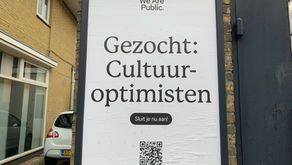Moscow
- Judith Weir
- Jun 8, 2016
- 2 min read

With several significant events already in my diary this week (including a premiere at St Paul’s Cathedral and important milestones at Spitalfields and BCMG) it probably wasn’t entirely sensible to get on a plane to Moscow and take part in Russian celebrations for the Queen’s 90th birthday. One big incentive was an invitation to stay at the British Ambassador’s Residence. It’s generally agreed that he has the best view in Moscow, looking over the Moscow River to the Kremlin Palace and three of its Cathedrals plus Ivan the Great’s Bell Tower (pictured). When I arrived, a fabulous party was in full swing, celebrating the Queen, and other UK things we can’t have enough of, like fish and chips and Pimm’s.
The movers and shakers for the musical events were the resourceful congregation of St Andrew’s Anglican Church, Moscow. The church building itself is a reassuringly British presence in downtown Moscow, built in the 1880s. For a long part of its existence (1917-1991, ie the lifetime of Soviet communism) it was not able to operate as a Church, but fulfilled other functions including, thanks to its spacious but clear acoustics, a thirty year period as the recording studio for Melodiya. Now it’s once again a thriving centre for Anglican worship and British culture; besides the performances I was involved in, a street party was planned for the weekend. A young Muscovite woman told me that she had formerly no idea what a street party was, but would now start worrying, British style, about the weather forecast.
In a stay that lasted barely 48 hours, I can’t pretend to have formed any insights about the music scene in Russia. But it was nevertheless interesting speaking to people who in the UK would be called ‘arts professionals’; and I was interviewed by a very clued-up arts commentator on the state channel TVKultura. The main question was always some variant of ‘Who funds music in the UK?’ It was almost impossible to summarise the mish-mash of faintly possible sources we constantly circle around when trying to support our artform at home. At the end of these conversations I began to think that, whereas in the UK state arts funding has been dismantled gradually, bit by bit since the 1980s, Russia’s funding had the rug suddenly pulled from under its feet a few years ago. There was total Anglo-Russian agreement in all conversations that, whether quickly or slowly, this had not been a wise thing to do.






